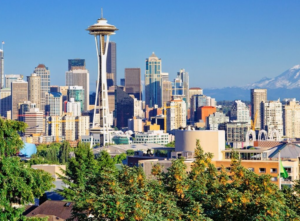Discovering the Jewel of Malta
Welcome to Malta, a stunning archipelago in the heart of the Mediterranean, where history, culture, and natural beauty come together to create a magical destination. Whether you’re a history buff, a beach lover, or a foodie, Malta has something for everyone. This first-timer’s guide will help you navigate this charming island nation, ensuring you make the most of your visit. So, grab your sunglasses, and let’s dive into the wonders of Malta!
Getting to Know Malta
A Brief Overview
Malta is a small island nation located between Sicily and the North African coast. It consists of three main islands: Malta, Gozo, and Comino. Despite its small size, Malta boasts a rich history that dates back thousands of years, influenced by various civilizations, including the Phoenicians, Romans, Arabs, and the Knights of St. John.
Language and Currency
The official languages are Maltese and English, making it easy for English-speaking tourists to communicate. The currency is the Euro (€), so you won’t have to worry about currency exchange if you’re coming from the Eurozone.
Top Attractions
Valletta
Start your Maltese adventure in Valletta, the capital city and a UNESCO World Heritage Site. Stroll through its narrow streets and marvel at the Baroque architecture. Don’t miss St. John’s Co-Cathedral, home to Caravaggio’s masterpiece, “The Beheading of Saint John the Baptist.”
Mdina
Step back in time with a visit to Mdina, the ancient walled city also known as the “Silent City.” Explore its medieval streets, visit the impressive Mdina Cathedral, and enjoy panoramic views of the island from the city walls.
The Blue Lagoon
For a slice of paradise, head to Comino’s Blue Lagoon. Its crystal-clear turquoise waters and white sandy seabed make it a perfect spot for swimming and snorkeling. Arrive early to avoid the crowds and secure a good spot on the rocky shore.
Gozo
Take a ferry to Gozo, Malta’s sister island, known for its rural charm and stunning landscapes. Visit the Azure Window’s remains at Dwejra Bay, explore the Ġgantija Temples, and relax on the red sands of Ramla Bay.
The Three Cities
Across the Grand Harbour from Valletta lie the Three Cities: Birgu (Vittoriosa), Senglea, and Cospicua. These fortified cities offer a glimpse into Malta’s maritime history. Wander through their ancient streets, visit the Inquisitor’s Palace, and enjoy a meal by the waterfront.
Activities and Experiences
Diving and Snorkeling
Malta is a diver’s paradise with its clear waters, diverse marine life, and numerous shipwrecks. Popular dive sites include the Blue Hole in Gozo and the wreck of the HMS Maori near Valletta. If you’re not a diver, snorkeling is a great way to explore the underwater world.
Hiking
The Maltese countryside offers beautiful hiking trails with stunning views. The Dingli Cliffs provide a dramatic backdrop for a coastal hike, while the trails around Mellieha and Gozo offer picturesque landscapes and historical sites.
Festivals and Events
Malta is known for its vibrant festivals. If you’re visiting in summer, don’t miss the traditional village festas, which feature fireworks, processions, and local food. The Malta International Arts Festival in July and the Notte Bianca in October are also worth experiencing.
Culinary Delights
Traditional Maltese Cuisine
Savor the flavors of Malta with traditional dishes like rabbit stew (fenek), pastizzi (flaky pastries filled with ricotta or mushy peas), and ftira (a Maltese sandwich made with fresh bread and a variety of fillings). Seafood lovers will enjoy fresh catches like lampuki (dolphin fish) and octopus stew.
Wine and Spirits
Malta has a burgeoning wine industry, with local varieties such as Ġellewża and Ghirgentina worth trying. Visit one of the island’s wineries for a tour and tasting. For something stronger, try the local spirit, Bajtra, a prickly pear liqueur.
Practical Tips
Getting Around
Malta’s public transportation system is efficient and affordable, with buses connecting major attractions and towns. Renting a car is also an option, but keep in mind that driving is on the left side of the road. For short distances, taxis and ride-sharing services are readily available.
Best Time to Visit
The best time to visit Malta is during the shoulder seasons of spring (April to June) and autumn (September to November). The weather is pleasant, and there are fewer tourists. Summer (July to August) is the peak season, with hot weather and crowded attractions.
Accommodation
Malta offers a range of accommodation options to suit all budgets, from luxury hotels and boutique guesthouses to budget-friendly hostels and vacation rentals. Valletta, Sliema, and St. Julian’s are popular areas to stay, offering easy access to attractions and amenities.
Staying Safe
Health and Safety
Malta is generally a safe destination for travelers. However, it’s always wise to take standard precautions, such as keeping an eye on your belongings and avoiding isolated areas at night. Tap water is safe to drink, but bottled water is widely available if you prefer.
Travel Insurance
Consider purchasing travel insurance that covers medical expenses, trip cancellations, and lost belongings. This can provide peace of mind and financial protection in case of unforeseen events.
